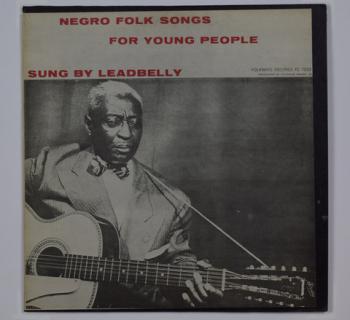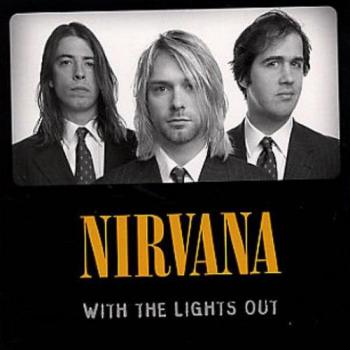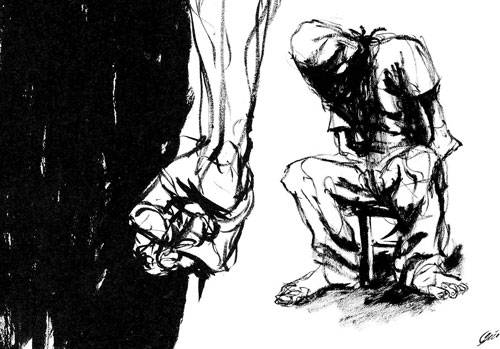Wasn’t it a pity an’ a shame!
An’ He never said a mumberlin’ word.
Wasn’t it a pity an’ a shame!
An’ He never said a mumberlin’ word,
Oh not a word, not a word, not a word.
Dey nailed Him to de tree!
An’ He never said a mumberlin’ word!
Dey nailed Him to de tree!
An’ He never said a mumberlin’ word!
Oh not a word, not a word, not a word.
Dey pierced Him in de side,
An’ He never said a mumberlin’ word!
Dey pierced Him in de side,
An’ He never said a mumberlin’ word!
Oh not a word, not a word, not a word.
De blood came a –twink-a-lin’ down!
An’ He never said a mumberlin’ word,
De blood came a-twink-a-lin’ down!
An’ He never said a mumberlin’ word,
Oh, not a word, not a word, not a word!
He bowed His head an’ died!
An’ He never said a mumberlin’ word,
He bowed His head an’ died!
An’ He never said a mumberlin’ word,
Oh, not a word, not a word, not a word!
An’ He never said a mumberlin’ word.
Wasn’t it a pity an’ a shame!
An’ He never said a mumberlin’ word,
Oh not a word, not a word, not a word.
Dey nailed Him to de tree!
An’ He never said a mumberlin’ word!
Dey nailed Him to de tree!
An’ He never said a mumberlin’ word!
Oh not a word, not a word, not a word.
Dey pierced Him in de side,
An’ He never said a mumberlin’ word!
Dey pierced Him in de side,
An’ He never said a mumberlin’ word!
Oh not a word, not a word, not a word.
De blood came a –twink-a-lin’ down!
An’ He never said a mumberlin’ word,
De blood came a-twink-a-lin’ down!
An’ He never said a mumberlin’ word,
Oh, not a word, not a word, not a word!
He bowed His head an’ died!
An’ He never said a mumberlin’ word,
He bowed His head an’ died!
An’ He never said a mumberlin’ word,
Oh, not a word, not a word, not a word!
Contributed by Bernart Bartleby - 2016/2/5 - 14:15
Language: English
Una delle versioni Leadbelly, risalente agli anni 40 (nell’ultima fase della sua vita), poi ripresa - quasi pari pari - da Kurt Cobain.
In molti dischi dedicati al grande bluesman della Louisiana, a cominciare da “Negro Folk Songs For Young People”, Folkways Records, 1960.

L’esecuzione di Kurt Cobain si trova in un demo del 1989 presente nella raccolta “Nirvana - With The Lights Out”

In molti dischi dedicati al grande bluesman della Louisiana, a cominciare da “Negro Folk Songs For Young People”, Folkways Records, 1960.

L’esecuzione di Kurt Cobain si trova in un demo del 1989 presente nella raccolta “Nirvana - With The Lights Out”

THEY HUNG HIM ON A CROSS (AND HE NEVER SAID A MUMBLING WORD)
They hung him on a cross, they hung him on a cross
They hung him on a cross for me
One day when I was lost, they hung him on the cross
They hung him on a cross for me
They whupped him up the hill, they whupped him up the hill
They whupped him up the hill for me
One day when I was lost, they hung him on the cross
They whupped him up the hill for me
They speared him in the side, they speared him in the side
They speared him in the side for me
One day when I was lost, they hung him on the cross
They speared him in the side for me
He never said a mumbling word, he never said a mumbling word
He never said a mumbling word for me
One day when I was lost, they hung him on the cross
He never said a mumbling word for me
He's comin' back again, he's comin' back again
He's comin' back again for me
One day when I was lost, they hung him on the cross
He's comin' back again for me
He's comin' back again, he's comin' back again
He's comin' back again for me
One day when I was lost, they hung him on the cross
He's comin' back again for me
He hung his head and died, he hung his head and died
He hung his head and died for me
One day when I was lost, they hung him on the cross
He hung his head and died for me
He never said a mumbling word, he never said a mumbling word
He never said a mumbling word for me
One day when I was lost, they hung him on the cross
He never said a mumbling word for me
They hung him on a cross, they hung him on a cross
They hung him on a cross for me
One day when I was lost, they hung him on the cross
They hung him on a cross for me
They whupped him up the hill, they whupped him up the hill
They whupped him up the hill for me
One day when I was lost, they hung him on the cross
They whupped him up the hill for me
They speared him in the side, they speared him in the side
They speared him in the side for me
One day when I was lost, they hung him on the cross
They speared him in the side for me
He never said a mumbling word, he never said a mumbling word
He never said a mumbling word for me
One day when I was lost, they hung him on the cross
He never said a mumbling word for me
He's comin' back again, he's comin' back again
He's comin' back again for me
One day when I was lost, they hung him on the cross
He's comin' back again for me
He's comin' back again, he's comin' back again
He's comin' back again for me
One day when I was lost, they hung him on the cross
He's comin' back again for me
He hung his head and died, he hung his head and died
He hung his head and died for me
One day when I was lost, they hung him on the cross
He hung his head and died for me
He never said a mumbling word, he never said a mumbling word
He never said a mumbling word for me
One day when I was lost, they hung him on the cross
He never said a mumbling word for me
Contributed by Bernart Bartleby - 2016/2/6 - 22:42
Language: Irish
Irish transcreation by Gabriel Rosenstock
MO THIARNA CÉASTA TÁ
Mo Thiarna céasta tá
Is níor tháinig oiread is cnead uaidh
Mo Thiarna céasta tá
Is níor tháinig oiread is cnead uaidh
Siolla ar bith, siolla ar bith, siolla ar bith
Cheanglaíodar é de chrann
Is níor tháinig oiread is cnead uaidh
Cheanglaíodar é de chrann
Is níor tháinig oiread is cnead uaidh
Siolla ar bith, siolla ar bith, siolla ar bith
Do tholl siad a thaobh geal
Is níor tháinig oiread is cnead uaidh
Do tholl siad a thaobh geal
Is níor tháinig oiread is cnead uaidh
Siolla ar bith, siolla ar bith, siolla ar bith
An fhuil ag sileadh síos
Is níor tháinig oiread is cnead uaidh
An fhuil ag sileadh síos
Is níor tháinig oiread is cnead uaidh
Siolla ar bith, siolla ar bith, siolla ar bith
Do chrom a cheann is d’éag
Is níor tháinig oiread is cnead uaidh
Do chrom a cheann is d’éag
Is níor tháinig oiread is cnead uaidh
Siolla ar bith, siolla ar bith, siolla ar bith
Mo Thiarna céasta tá
Is níor tháinig oiread is cnead uaidh
Mo Thiarna céasta tá
Is níor tháinig oiread is cnead uaidh
Siolla ar bith, siolla ar bith, siolla ar bith
Cheanglaíodar é de chrann
Is níor tháinig oiread is cnead uaidh
Cheanglaíodar é de chrann
Is níor tháinig oiread is cnead uaidh
Siolla ar bith, siolla ar bith, siolla ar bith
Do tholl siad a thaobh geal
Is níor tháinig oiread is cnead uaidh
Do tholl siad a thaobh geal
Is níor tháinig oiread is cnead uaidh
Siolla ar bith, siolla ar bith, siolla ar bith
An fhuil ag sileadh síos
Is níor tháinig oiread is cnead uaidh
An fhuil ag sileadh síos
Is níor tháinig oiread is cnead uaidh
Siolla ar bith, siolla ar bith, siolla ar bith
Do chrom a cheann is d’éag
Is níor tháinig oiread is cnead uaidh
Do chrom a cheann is d’éag
Is níor tháinig oiread is cnead uaidh
Siolla ar bith, siolla ar bith, siolla ar bith
Contributed by Gabriel Rosenstock - 2018/7/28 - 17:00
Una poesia di Wisława Szymborska, nella raccolta Koniec i początek del 1993.
Traduzione italiana di Pietro Marchesani, nell’antologia “La gioia di scrivere. Tutte le poesie (1945-2009)”, Adelphi, 2009.
TORTURY
Nic się nie zmieniło.
Ciało jest bolesne,
jeść musi i oddychać powietrzem i spać,
ma cienką skórę, a tuż pod nią krew,
ma spory zasób zębów i paznokci,
kości jego łamliwe, stawy rozciągliwe.
W torturach jest to wszystko brane pod uwagę.
Nic się nie zmieniło.
Ciało drży, jak drżało
przed założeniem Rzymu i po założeniu.
w dwudziestym wieku przed i po Chrystusie,
tortury są, jak były, zmalała tylko ziemia
i cokolwiek się dzieje, to tak jak za ścianą.
Nic się nie zmieniło.
Przybyło tylko ludzi,
obok starych przewinień zjawiły się nowe,
rzeczywiste, wmówione, chwilowe i żadne,
ale krzyk, jakim ciało za nie odpowiada,
był, jest i będzie krzykiem niewinności,
podług odwiecznej skali i rejestru.
Nic się nie zmieniło.
Chyba tylko maniery, ceremonie, tańce.
Ruch rąk osłaniających głowę
pozostał jednak ten sam.
Ciało się wije, szarpie i wyrywa,
ścięte z nóg pada, podkurcza kolana,
sinieje, puchnie, ślini się i broczy.
Nic się nie zmieniło.
Poza biegiem rzek,
linią lasów, wybrzeży, pustyń i lodowców.
Wśród tych pejzaży duszyczka się snuje,
znika, powraca, zbliża się, oddala,
sama dla siebie obca, nieuchwytna,
raz pewna, raz niepewna swojego istnienia,
podczas gdy ciało jest i jest i jest
i nie ma się gdzie podziać.
Nic się nie zmieniło.
Ciało jest bolesne,
jeść musi i oddychać powietrzem i spać,
ma cienką skórę, a tuż pod nią krew,
ma spory zasób zębów i paznokci,
kości jego łamliwe, stawy rozciągliwe.
W torturach jest to wszystko brane pod uwagę.
Nic się nie zmieniło.
Ciało drży, jak drżało
przed założeniem Rzymu i po założeniu.
w dwudziestym wieku przed i po Chrystusie,
tortury są, jak były, zmalała tylko ziemia
i cokolwiek się dzieje, to tak jak za ścianą.
Nic się nie zmieniło.
Przybyło tylko ludzi,
obok starych przewinień zjawiły się nowe,
rzeczywiste, wmówione, chwilowe i żadne,
ale krzyk, jakim ciało za nie odpowiada,
był, jest i będzie krzykiem niewinności,
podług odwiecznej skali i rejestru.
Nic się nie zmieniło.
Chyba tylko maniery, ceremonie, tańce.
Ruch rąk osłaniających głowę
pozostał jednak ten sam.
Ciało się wije, szarpie i wyrywa,
ścięte z nóg pada, podkurcza kolana,
sinieje, puchnie, ślini się i broczy.
Nic się nie zmieniło.
Poza biegiem rzek,
linią lasów, wybrzeży, pustyń i lodowców.
Wśród tych pejzaży duszyczka się snuje,
znika, powraca, zbliża się, oddala,
sama dla siebie obca, nieuchwytna,
raz pewna, raz niepewna swojego istnienia,
podczas gdy ciało jest i jest i jest
i nie ma się gdzie podziać.
Traduzione italiana di Pietro Marchesani, nell’antologia “La gioia di scrivere. Tutte le poesie (1945-2009)”, Adelphi, 2009.
TORTURE
Nulla è cambiato.
Il corpo prova dolore,
deve mangiare e respirare e dormire,
ha la pelle sottile, e subito sotto – sangue,
ha una buona scorta di denti e di unghie,
le ossa fragili, le giunture stirabili.
Nelle torture di tutto ciò si tiene conto.
Nulla è cambiato.
Il corpo trema, come tremava prima e dopo la fondazione di Roma,
nel ventesimo secolo prima e dopo Cristo,
le torture c’erano e ci sono, solo la Terra è più piccola
e qualunque cosa accada, è come dietro la porta.
Nulla è cambiato.
C’è soltanto più gente,
alle vecchie colpe se ne sono aggiunte di nuove,
reali, fittizie, temporanee e inesistenti,
ma il grido con cui il corpo
ne risponderà, è
e sarà un grido di innocenza,
secondo un registro e una scala eterni.
Nulla è cambiato.
Tranne forse i modi, le cerimonie, le danze.
Il gesto delle mani che proteggono il capo
è rimasto però lo stesso,
il corpo si torce, si dimena e si divincola,
fiaccato cade, raggomitola le ginocchia,
illividisce, si gonfia, sbava e sanguina.
Nulla è cambiato.
Tranne il corso dei fiumi,
la linea dei boschi, del litorale, di deserti e ghiacciai.
Tra questi paesaggi l’anima vaga,
sparisce, ritorna, si avvicina, si allontana,
a se stessa estranea, inafferrabile,
ora certa, ora incerta della propria esistenza,
mentre il corpo c’è, e c’è, e c’è
e non trova riparo.
Nulla è cambiato.
Il corpo prova dolore,
deve mangiare e respirare e dormire,
ha la pelle sottile, e subito sotto – sangue,
ha una buona scorta di denti e di unghie,
le ossa fragili, le giunture stirabili.
Nelle torture di tutto ciò si tiene conto.
Nulla è cambiato.
Il corpo trema, come tremava prima e dopo la fondazione di Roma,
nel ventesimo secolo prima e dopo Cristo,
le torture c’erano e ci sono, solo la Terra è più piccola
e qualunque cosa accada, è come dietro la porta.
Nulla è cambiato.
C’è soltanto più gente,
alle vecchie colpe se ne sono aggiunte di nuove,
reali, fittizie, temporanee e inesistenti,
ma il grido con cui il corpo
ne risponderà, è
e sarà un grido di innocenza,
secondo un registro e una scala eterni.
Nulla è cambiato.
Tranne forse i modi, le cerimonie, le danze.
Il gesto delle mani che proteggono il capo
è rimasto però lo stesso,
il corpo si torce, si dimena e si divincola,
fiaccato cade, raggomitola le ginocchia,
illividisce, si gonfia, sbava e sanguina.
Nulla è cambiato.
Tranne il corso dei fiumi,
la linea dei boschi, del litorale, di deserti e ghiacciai.
Tra questi paesaggi l’anima vaga,
sparisce, ritorna, si avvicina, si allontana,
a se stessa estranea, inafferrabile,
ora certa, ora incerta della propria esistenza,
mentre il corpo c’è, e c’è, e c’è
e non trova riparo.
Bernart Bartleby - 2016/2/7 - 21:38
×
![]()
Note for non-Italian users: Sorry, though the interface of this website is translated into English, most commentaries and biographies are in Italian and/or in other languages like French, German, Spanish, Russian etc.









La varietà dei titoli è direttamente proporzionale alle differenti versioni esistenti.
Io ho scelto – sulla base delle informazioni fornite su Bluegrass Messengers – quella risalente agli anni 20 e attribuita ai Fisk Jubilee Singers, il famoso gruppo vocale nero di fine 800.
Negli anni 30 e 40 furono i Lomax a raccogliere varie esecuzioni del brano in giro per i penitenziari e le prison farms di Mississippi e Louisiana. Ed è in una di queste che i mitici etnomusicologi nel 1933 scoprirono un bluesman straordinario, tal Huddie William Ledbetter, detto “Leadbelly”, che in seguito, negli anni 40, incise più volte “Ed Egli non emise mai un lamento”.
La versione di Leadbelly era una delle canzoni preferite da Kurt Cobain dei Nirvana, il quale nel 1989 - con il compagno Krist Novoselic e Mark Lanegan e Mark Pickerel degli Screeming Trees, a formare una superband chiamata The Jury – registrarono quattro canzoni del repertorio del bluesman della Louisiana, tra cui proprio questa (oltre che la celeberrima “Black Girl”, chiamata anche “In the Pines”, o “Where Did You Sleep Last Night?”), sotto il titolo “They Hung Him on a Cross”.
Molto ricorrente anche nei dischi di Josh White, a cominciare da un singolo del 1951.
Nelle esecuzioni “And He Never Said a Mumblin' Word” si accompagna spesso ad un altro spiritual sulla passione di Cristo, “Were You There (When They Crucified My Lord)?”, possibilmente dello stesso autore, o autori.
La Passione di Cristo, qui descritta in modo molto crudo e lontano dall’iconografia classica (e falsa) cui siamo stati abituati da Santa Madre Chiesa… Nient’altro che la tortura e l’assassinio di un uomo che ha cercato giustizia e verità, non per sé ma per i suoi simili, e che per questo ha sfidato i potenti accettando persino l’eventualità di una fine orrenda…
Io vorrei oggi dedicare questa canzone a Giulio Regeni, ricercatore universitario e corrispondente de Il Manifesto dall’Egitto, che al Cairo ha vissuto la sua tremenda Passione, stroncato nella sua ricerca di verità e di giustizia probabilmente da cani feroci dello stesso tipo di quelli che nel 2010 uccisero il giovane Khaled Said, il cui orrendo assassinio fu la scintilla che scatenò l’ormai purtroppo soffocata “primavera” egiziana.